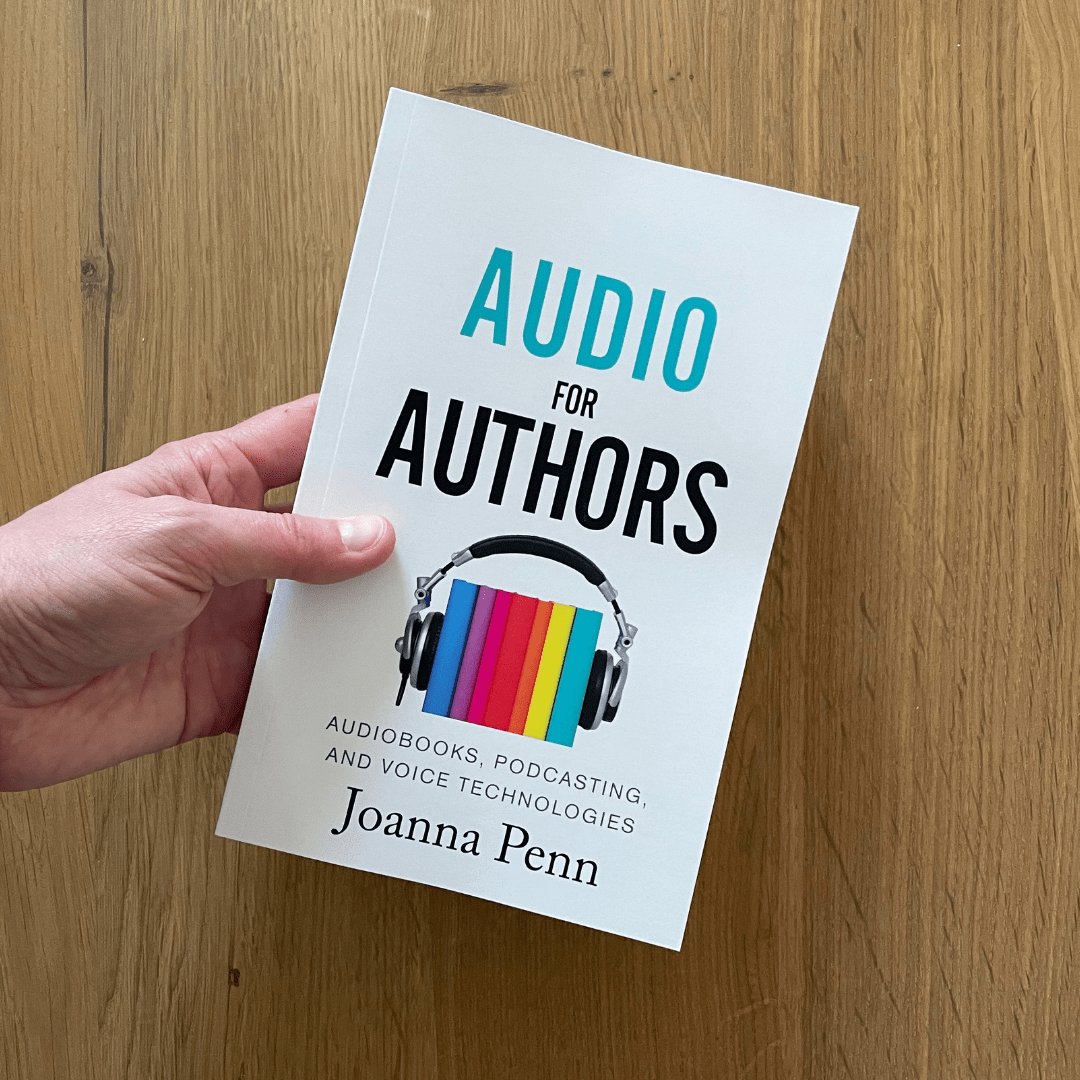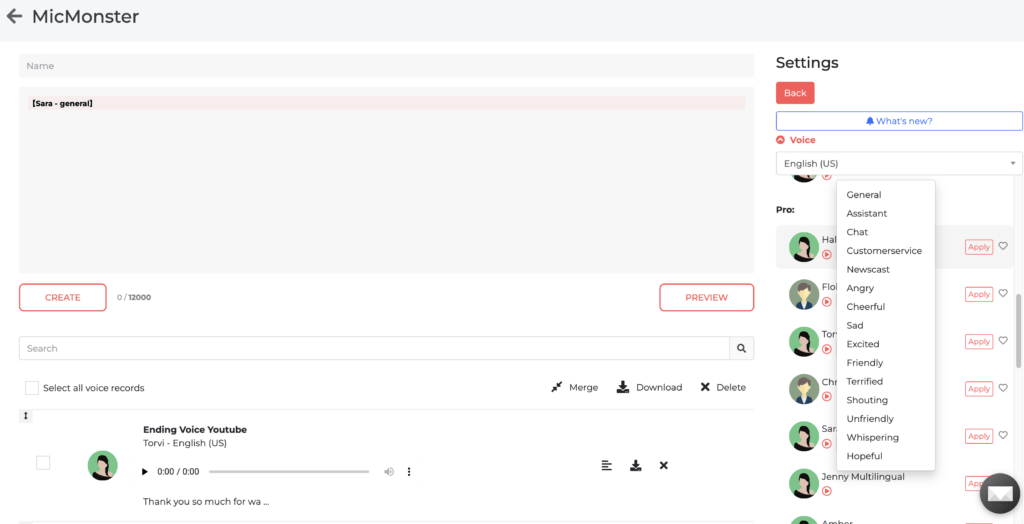
Audiobooks are an increasingly popular way for people to enjoy books while multitasking or on the go. If you love reading aloud and are considering narrating audiobooks, here is an overview of everything you need to know about how to get started in voice audiobooks.
Interested in the future of audiobooks? Explore how technology is transforming them with text-to-speech (TTS) for Audiobooks and MicMonster.
Overview of How to Voice Audiobooks

Audiobook narration requires a specific set of skills including clear vocal diction, stamina to record for long sessions, acting ability to portray different characters, and versatility to handle various genres from fiction to non-fiction.
Before recording, you need to prepare by reading the book thoroughly, marking up the script, warming up your voice, and practicing reading aloud. Proper voice recording equipment is necessary such as a microphone, pop filter, headphones, and audio editing software.
After recording sessions, audiobooks require editing to remove mistakes before producing the final files in audiobook formats. Marketing and distribution through online platforms, social media, and audiobook sites is key to selling your finished audiobooks.
How to Use Audiobook Narration Skills

Audiobook narration requires some specific skills and natural talents:
- Clear diction: Proper pronunciation and crisp vocal articulation
- Breath control: Steady breathing rhythm while reading aloud
- Pleasant voice: An engaging vocal tone and cadence
- Consistency: Maintaining an even pace and volume throughout
- Stamina: Ability to record long sessions without vocal fatigue
- Acting talent: Portraying distinct characters with unique voices
- Reading skills: Accurate and expressive oral reading abilities
- Versatility: Ability to handle various genres, topics, characters
These skills are developed through practice reading aloud, taking voice acting classes, listening to other audiobooks, and getting feedback from coaches or samples. Narrating audiobooks takes patience and persistence to constantly improve your vocals.
Opinions on Audiobook Narration

There are some varying opinions on what makes an effective and engaging audiobook narrator:
Be expressive but subtle: Use some vocal characterization but don’t overact. Let the story and characters speak for themselves.
Conversational tone: Read as if you are speaking directly to the listener. Avoid sounding too theatrical.
Stimulating pace: Keep a steady rhythm that drives the story forward, but don’t rush.
Vocal clarity: Every word should be crisp and clear. Proper pronunciation and projection are key.
Voice “neutrality”: Avoid thick accents or speech quirks so as not to distract. Standard diction works for most books.
Subtlety is best: Audiences want to get lost in the story, not the narrator’s dramatic flair.
Personality but don’t overpower: Infuse some of your own personality while still serving the author’s intentions.
Finding the right balance of expressiveness, subtlety, and vocal neutrality takes practice and experience narrating all types of literature.
Examples of Audiobook Narration Techniques

Here are some examples of how audiobook narrators bring books to life with their voice acting skills:
Unique Character Voices
- Use different accents, registers, and speech patterns for each character
- Adjust volume, tone, and inflection for each character
- Portray age, gender, and personality through vocal techniques
Scene Setting
- Slow pace and add pauses when describing settings
- Adjust volume and tone for different scenes and moods
- Whisper for intimate moments, get loud and animated for tense scenes
Dialogue Delivery
- Use pacing, volume changes, and inflection to differentiate between characters
- Insert dramatic pauses during conversations
- Mimic accents and dialects of characters during dialogue
Narrative Voice
- Use a clear, neutral vocal tone and pace for narration and descriptions
- Avoid sounding monotonic by adding subtle inflections
- Adjust volume during narration to maintain interest
Overall Pace
- Keep a steady, moderate pace to drive the story forward
- Slow down for dramatic effect at key moments
- Speed up during action sequences to build excitement
FAQs About Audiobook Narration
How do you prepare to record an audiobook?
- Read the book thoroughly multiple times
- Mark up the script with notes and highlights
- Familiarize yourself fully with the characters
- Time yourself reading it aloud to perfect pacing
- Practice character voices and accents
- Warm up your voice before recording sessions
What equipment do you need to record audiobooks?
- High-quality microphone
- Pop filter
- Headphones or headphone amplifier
- Audio recording and editing software
- Computer or laptop
- Quiet, soundproof recording space
How do you edit an audiobook recording?
- Listen back to the raw recordings
- Cut out any mistakes or mispronunciations
- Cut out extraneous noises like page turns
- Adjust volume inconsistencies
- Add in pauses or breaks between chapters
- Insert sound effects if desired
What file formats are used for audiobooks?
Common audiobook file formats include:
- MP3
- M4B
- AAX
- WMA
Formats are optimized for different audio platforms and devices.
How can you market and sell your audiobooks?
- Create a website to promote your narration services
- List your audiobooks on digital platforms like Audible and iTunes
- Use social media to connect with listeners
- Reach out to book bloggers and reviewers
- Attend book fairs or audiobook conventions
- Consider joining the Audiobook Publishers Association
Conclusion on How to Voice Audiobooks
Audiobook narration requires vocal talents, technical skills, and marketing savvy, but can be a rewarding way to help bring authors’ works to life. With proper preparation, equipment, and practice in techniques from pacing to characterization, you can learn how to start voice acting for audiobook productions. Persistence and continually getting feedback are key to improve your narration abilities over time. If you love reading and have an engaging speaking voice, a niche in audiobook narration may be perfect for you.

